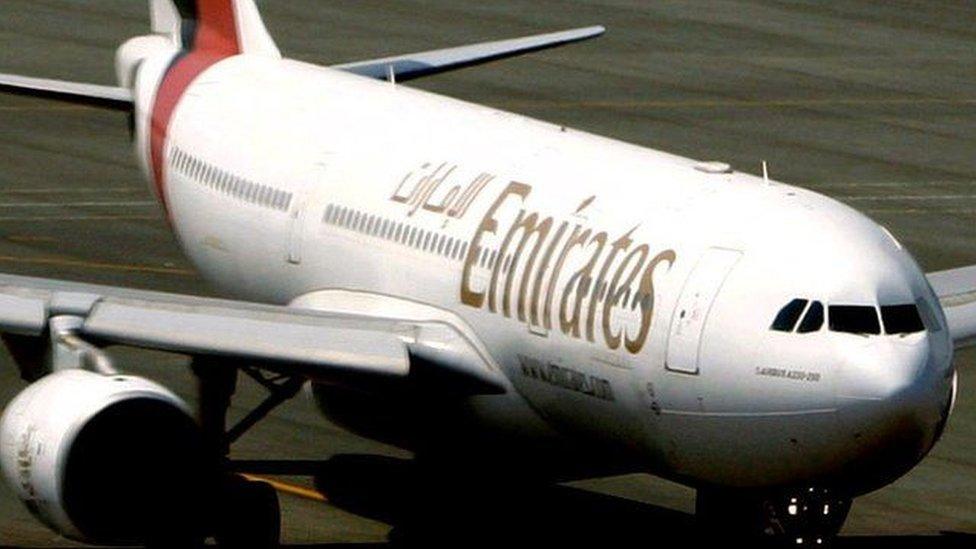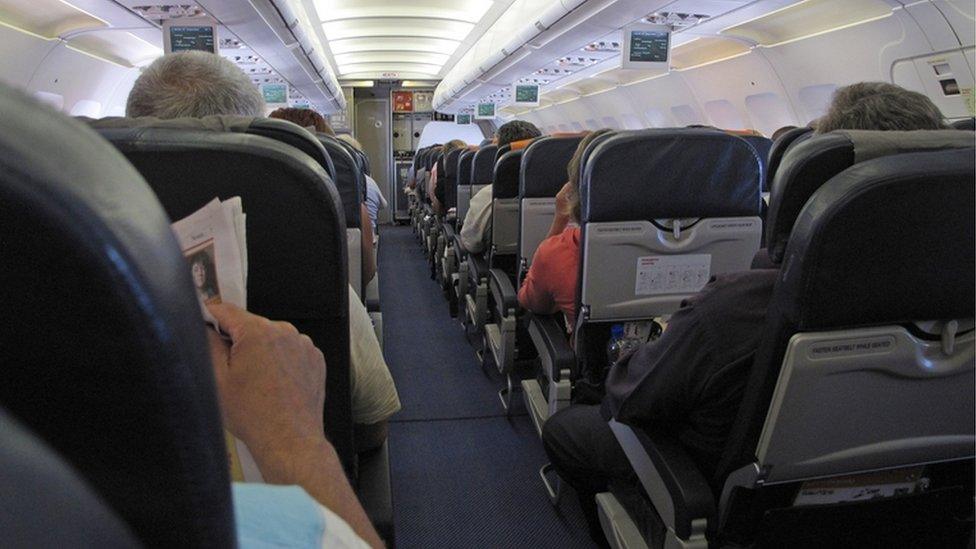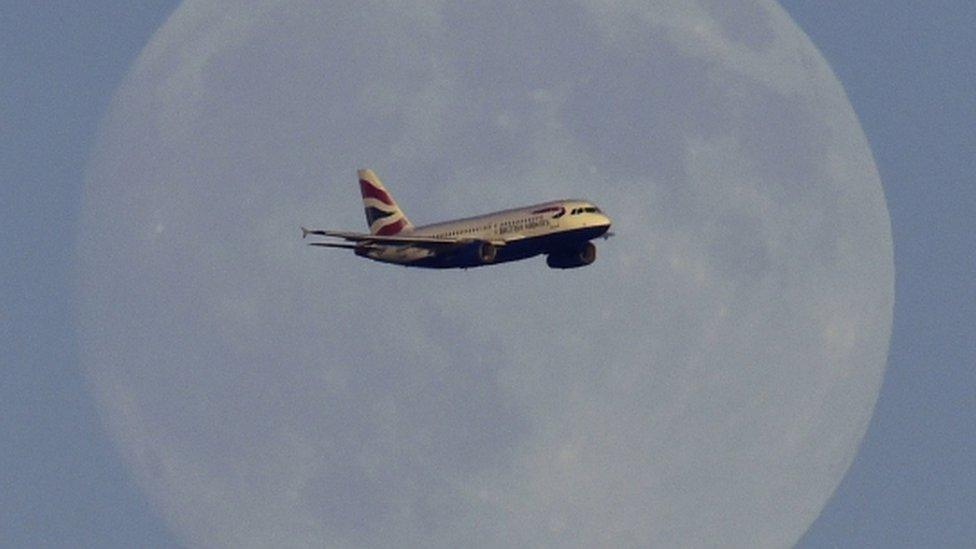Reform Scotland backs air passenger duty cut
- Published

Emirates is one of the airlines which operates long-haul services from Scotland
A leading think tank has backed Scottish government plans to cut and eventually scrap Air Passenger Duty.
Reform Scotland said the move would boost jobs, productivity and tourism as well as making travel cheaper for Scots.
It also highlighted the fact that only four other EU countries now have a similar tax.
Environmental groups have criticised the proposals, which they say will lead to an increase in greenhouse gasses.
The Scottish Greens said cutting Air Passenger Duty (APD) was a "bizarre priority", while Labour said it would not make Scotland "greener or fairer".
Air passenger duty is charged on all passenger flights from UK airports, with the rate of tax varying according to where the passenger is going, and the class of travel, starting at about £13 for short-haul flights to Europe.
It brings in about £3bn a year for the UK government.
'Positive impact'
The Scottish government wants to use new powers being devolved to Holyrood to reduce APD from Scottish airports by 50% from April 2018 before eventually abolishing the tax altogether.
It believes the move will help to boost Scotland's international connectivity and contribute to sustainable growth, and has pledged to give "due consideration" to environmental issues.
A consultation on the proposals met with a mixed response when it closed last month.
In a briefing paper, external, Reform Scotland said that the loss of revenue from the move could be at least matched by increases in revenue from other sources such as job and productivity growth and tourism expenditure.
It said the proposals had been backed by the business community due to the "positive impact it would have on economic growth".
And it said the tourism sector believed it would lower costs for Scottish families going on holiday, as well as attracting more visitors to Scotland.

Reform Scotland said cutting APD would make flights cheaper for Scottish holidaymakers
The think tank's chairman, Alan McFarlane, said the Scottish government should proceed with its plans to cut APD.
He added: "Countries across Europe, including Ireland, Belgium, Holland and Denmark, have scrapped their air passenger tax in recent years. By retaining ours, we are out of step with the rest of the EU.
"This is not an ideological issue. It is an obvious and simple economic case. The economic benefits of cutting or scrapping the tax will outweigh the cost of doing so, which will benefit everyone."
Edinburgh Airport published a report last year that claimed a 50% reduction in APD would create 3,800 jobs by 2020 and stimulate £200m of economic benefits for Scotland each year.
Mr McFarlane called on all political parties at Holyrood to support the move, which he said was in the best interests of Scotland's economy and people.
He said: "If they fail to do so it will be up to them to justify why they oppose a measure which a wide range of voices argue will help promote economic growth."
'Wrong move'
But Scottish Greens climate change spokesman Mark Ruskell said: "It's a bizarre priority given the state of public finances for the Scottish government to want to subsidise the airline industry so frequent flyers can leave Scotland more cheaply.
"The costs to the public purse and the environment are too great for an economic benefit which may be marginal at best and at worst could undermine domestic tourism and rail."
And Scottish Labour's transport spokesman, Neil Bibby, said attempting to "make a business class flight cheaper" was the "wrong move at the wrong time".
He added: "With record passenger numbers at Scottish airports it would be the wrong move to offer a huge tax break to airlines who simply don't need it, and kick off a race to the bottom with other parts of the UK.
"The SNP need to scrap their plans to cut Air Passenger Duty."
A Scottish government spokesman said: "Our plan to initially cut APD and then abolish it when public finances permit is a fundamental component to improving Scotland's international connectivity.
"UK APD has been the most expensive tax of its kind in Europe and continues to act as a barrier to Scotland's ability to secure new direct international services and maintain existing ones.
"Devolution of APD to the Scottish Parliament will provide the opportunity to put in place new arrangements which better support the Scottish government's objective to help generate new direct routes - benefiting passengers, businesses and the wider economy."
- Published29 July 2016
